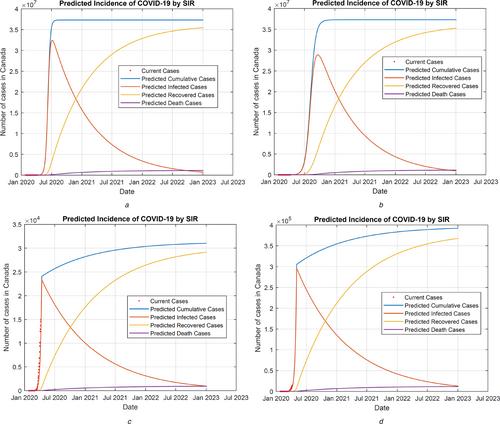Predicting COVID-19 trends in Canada: a tale of four models
IF 1.2
Q4 COMPUTER SCIENCE, ARTIFICIAL INTELLIGENCE
引用次数: 7
Abstract
This study aims to offer multiple-model informed predictions of COVID-19 in Canada, specifically through the use of deep learning strategy and mathematical prediction models including long-short term memory network, logistic regression model, Gaussian model, and susceptible-infected-removed model. Using the published data as of the 10th of April 2020, the authors forecast that the daily increased number of infective cases in Canada has not reached the peak turning point and will continue to increase. Therefore, Canada's healthcare services need to be ready for the magnitude of this pandemic.

预测加拿大COVID-19趋势:四个模型的故事
本研究旨在通过使用深度学习策略和包括长短期记忆网络、逻辑回归模型、高斯模型和易感感染-去除模型在内的数学预测模型,为加拿大的COVID-19提供多模型的信息预测。作者利用截至2020年4月10日的公布数据预测,加拿大每天增加的感染病例数尚未达到峰值转折点,并将继续增加。因此,加拿大的医疗保健服务需要为这次大流行的严重性做好准备。
本文章由计算机程序翻译,如有差异,请以英文原文为准。
求助全文
约1分钟内获得全文
求助全文
来源期刊

Cognitive Computation and Systems
Computer Science-Computer Science Applications
CiteScore
2.50
自引率
0.00%
发文量
39
审稿时长
10 weeks
 求助内容:
求助内容: 应助结果提醒方式:
应助结果提醒方式:


